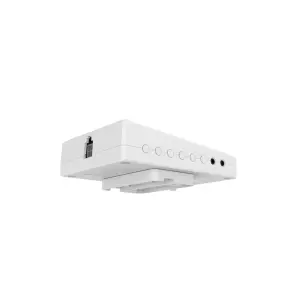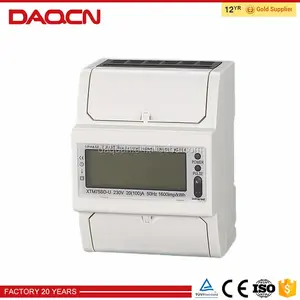Understanding Utility Meters
Utility meters are essential instruments for measuring consumption of various utilities in both residential and commercial settings. These devices play a crucial role in monitoring and managing the use of resources such as electricity, water, and gas. With advancements in technology, the traditional utility meter has evolved, giving rise to various types such as the electric smart meter and digital electric meter, which offer enhanced features for improved data accuracy and user convenience.
Types of Utility Meters
The spectrum of utility meters encompasses a range of devices designed for specific applications. The electricity meter, a common sight in many households, is engineered to record the consumption of electrical energy. For more detailed monitoring, the electric sub meter allows for individual tracking of electricity usage for different sections or equipment within a property. In the realm of gas utilities, the smart meter gas variant provides a digital way to measure gas consumption, often with remote monitoring capabilities.
Applications and Features
Utility meters serve a fundamental purpose across various sectors. In residential areas, the house electric meter is a staple, facilitating the billing process based on actual consumption. For water services, the residential water meter is employed to measure the volume of water used. These meters often come with features such as tamper detection, exemplified by mechanisms to identify bypassing electric meter attempts, ensuring the integrity of usage data.
Advancements in Metering Technology
The advent of the electric smart meter represents a significant leap in utility management. These meters provide real-time data and can be integral to energy management systems, contributing to efficient energy use. Similarly, the prepaid electricity meters offer a pay-as-you-go solution, giving users control over their electricity expenses. The integration of smart technology in these devices, such as the eskom smart meter, allows for enhanced user interaction and utility conservation.
Materials and Durability
Modern utility meters are constructed from durable materials designed to withstand environmental factors and provide long-term service. The internal components are often sealed to protect against moisture and dust, ensuring that devices like the consumption meter for electricity maintain accuracy over time. The robust construction is particularly important for meters exposed to the elements, such as the natural gas meter, which must operate reliably in a variety of conditions.
Choosing the Right Utility Meter
Selecting the appropriate utility meter requires consideration of the specific utility being measured, the required features, and the intended application. Whether it's for tracking energy usage with a new electric meter or monitoring gas consumption with a moving gas meter, it's important to choose a meter that aligns with the user's needs. Alibaba.com serves as a platform where a wide array of utility meters can be explored, offering a diverse selection to meet the varying demands of consumers and industries alike.









































 浙公网安备 33010002000092号
浙公网安备 33010002000092号 浙B2-20120091-4
浙B2-20120091-4